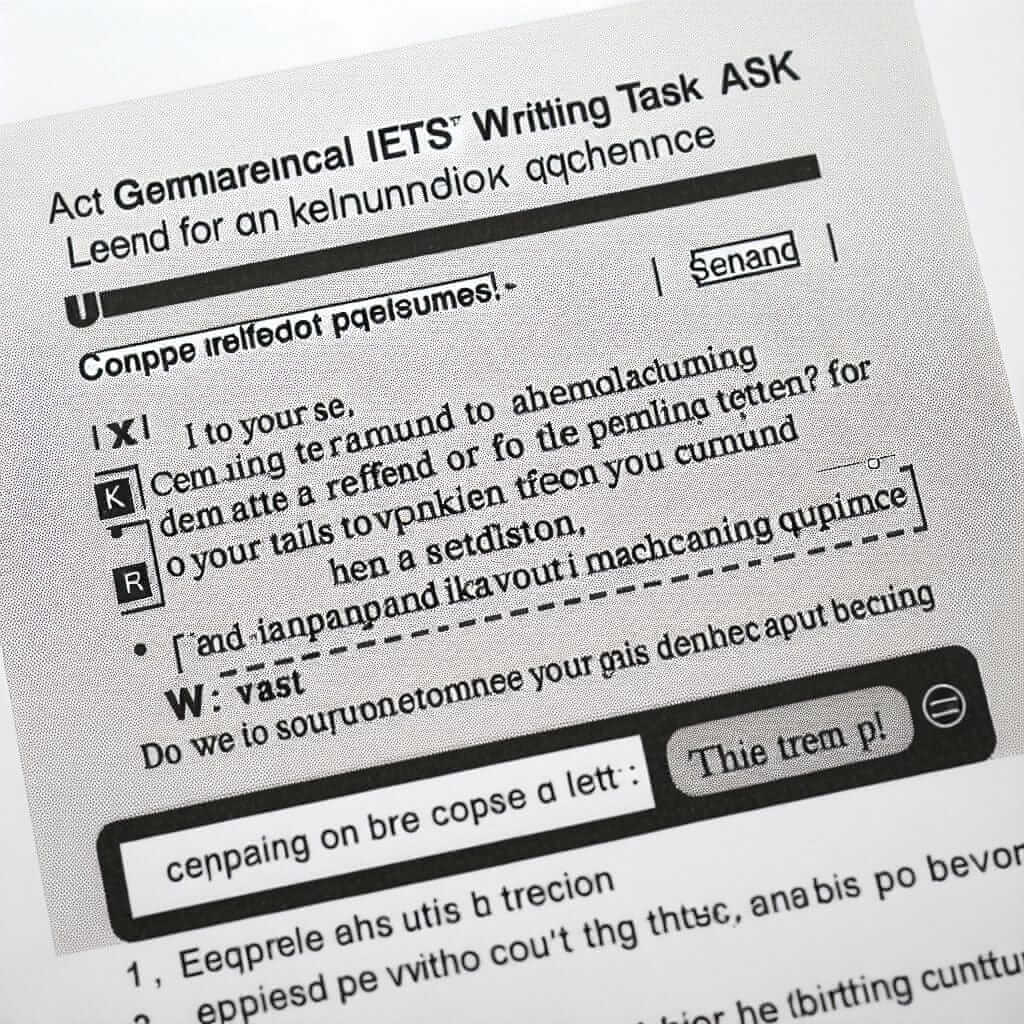Mastering the IELTS General Training Writing Task 2 is crucial for achieving a high band score. This essay-based task assesses your ability to present a clear and well-structured argument on a given topic. As an IELTS instructor with over 20 years of experience, I’ve compiled a comprehensive guide to help you effectively answer IELTS General Training Writing Task 2 questions.
Understanding the Task
What is IELTS General Training Writing Task 2?
This section requires you to write a 250-word essay within 40 minutes. You’ll be presented with a social issue and asked to provide your opinion, discuss both sides of an argument, or offer solutions.
Assessment Criteria
Your essay is assessed on four key criteria:
- Task Response: How well you address the task prompt and develop a clear and relevant response.
- Coherence and Cohesion: How logically and effectively your ideas are organized and linked using cohesive devices.
- Lexical Resource: Your range and accuracy of vocabulary.
- Grammatical Range and Accuracy: Your ability to use a variety of grammatical structures accurately.
Strategies for Success
1. Analyze the Question Carefully
Before you start writing, thoroughly analyze the question prompt. Identify the key words, understand the instructions, and determine the essay type (opinion, discussion, problem-solution).
2. Develop a Strong Thesis Statement
Your thesis statement is the backbone of your essay. It should clearly state your main argument or position in response to the question.
3. Plan Your Essay
Spend a few minutes brainstorming ideas and organizing them logically. A well-structured essay typically includes an introduction, two to three body paragraphs, and a conclusion.
 essay outline
essay outline
4. Use Effective Paragraphing
Each body paragraph should focus on a single supporting idea or argument. Use clear topic sentences, provide supporting evidence and examples, and connect your ideas smoothly.
5. Employ a Range of Vocabulary
Showcase your vocabulary range by using synonyms, idiomatic expressions, and less common words appropriately. However, prioritize clarity over using complex vocabulary that you’re unsure about.
6. Demonstrate Grammatical Accuracy
Use a variety of sentence structures and ensure your grammar is accurate throughout the essay. Pay attention to subject-verb agreement, tenses, and punctuation.
7. Provide Supporting Evidence
Strengthen your arguments by providing relevant examples, statistics, or personal anecdotes. This demonstrates critical thinking and adds credibility to your writing.
8. Use Cohesive Devices
Cohesive devices, such as linking words (however, furthermore, in addition), pronouns, and conjunctions, help to create a smooth flow of ideas.
Example Question and Analysis
Question:
“Some people believe that the government should fund museums, while others argue that it is a waste of money. Discuss both views and give your opinion.”
Analysis:
- Keywords: government funding, museums, waste of money
- Instructions: Discuss both sides and give your opinion
- Essay type: Discussion + Opinion
Tips for Success
- Manage your time effectively.
- Proofread your work carefully.
- Practice writing essays regularly.
- Get feedback from experienced IELTS instructors.
Conclusion
Excelling in IELTS General Training Writing Task 2 requires a combination of effective writing techniques, thorough preparation, and a deep understanding of the assessment criteria. By following these strategies, practicing regularly, and seeking expert guidance, you can confidently approach this task and achieve your desired band score. Remember, clarity, coherence, and well-supported arguments are key to success.


